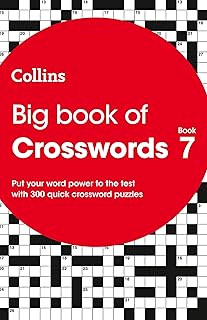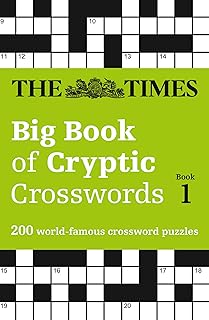When solving a crossword puzzle, have you ever noticed that as you progress, it seems to become easier? According to physicist Alexander Hartmann from the University of Oldenburg, there’s a mathematical explanation for this phenomenon: percolation. Percolation theory, commonly used in various scientific fields, including physics and mathematics, deals with how network models evolve when new elements are added, leading to a phase transition and the emergence of new properties.
In a recent study published in Physical Review E, Hartmann explores how percolation theory applies to crossword puzzles. He delved into creating a block of letters that formed words in all directions, akin to solving a crossword without the black spacer squares. This experiment led him to realize that crossword puzzles present a variation of a percolation problem.
Through his research, Hartmann discovered that as one solves words in a crossword puzzle, the probability of solving neighboring words increases, triggering a chain reaction of word-solving iterations, akin to an avalanche. He believes that studying this concept further could unveil connections between abstract phase transition theories and their real-world applications.
Moreover, Hartmann’s work on crossword-puzzle percolation has unveiled a new type of universal behavior not seen in other percolation problems. This unique insight sheds light on how the perceived difficulty of a crossword puzzle changes as progress is made, suggesting that a breakthrough moment is often just around the corner.
By applying physics concepts to the realm of puzzles, Hartmann’s research offers a fresh perspective on how our brains tackle challenges and how seemingly complex problems can be simplified through interconnected solutions. This interdisciplinary approach not only enhances our understanding of puzzle-solving mechanisms but also highlights the broader implications of percolation theory in various scientific disciplines.
Overall, Hartmann’s innovative study not only enriches our comprehension of crossword puzzles but also demonstrates the versatility of percolation theory in elucidating complex phenomena across different fields. As crossword enthusiasts continue to unravel clues and fill in blanks, they are inadvertently engaging with a fundamental concept deeply rooted in the fabric of scientific inquiry.
📰 Related Articles
- Whitesnake’s Rudy Sarzo Reveals Secrets Behind ’80s Music Videos
- Mathematical Puzzle Box Problem: Unveiling Counter-Intuitive Discoveries
- Magician Phil Bevan Reveals Secrets Behind Appearing Silk Trick
- Event Reveals Nature’s Color Secrets with Expert Physicist
- Crossword Puzzle ‘Nature’s Candy’ Delights with Sweet Confections
📚Book Titles
- Shred Heaven, Drum Hell: The Explosive Evolution and Untold Mastery of Speed Metal
- Why Lucy Still Reigns as the Queen of Human Evolution After 50 Years
- Voyage to the Vermilion: A Comprehensive Review of Mars Explorations and Future Prospects
- Monsters Among Us: An In-Depth Exploration of the Mind, Motive, and Mythology of Serial Killers






